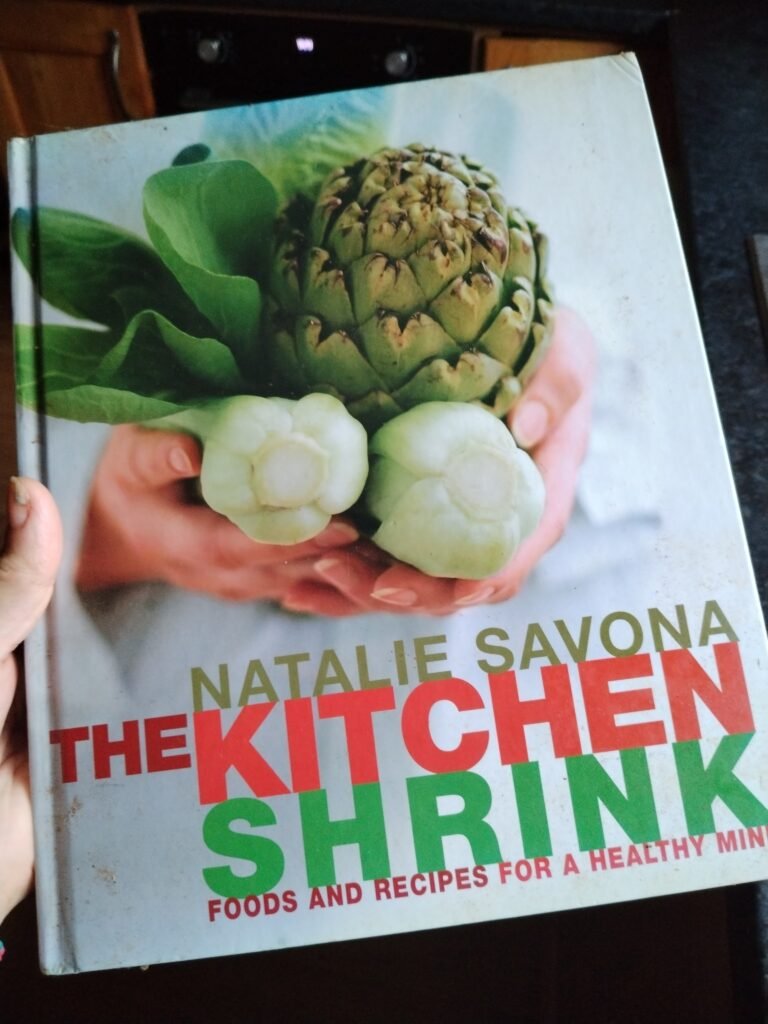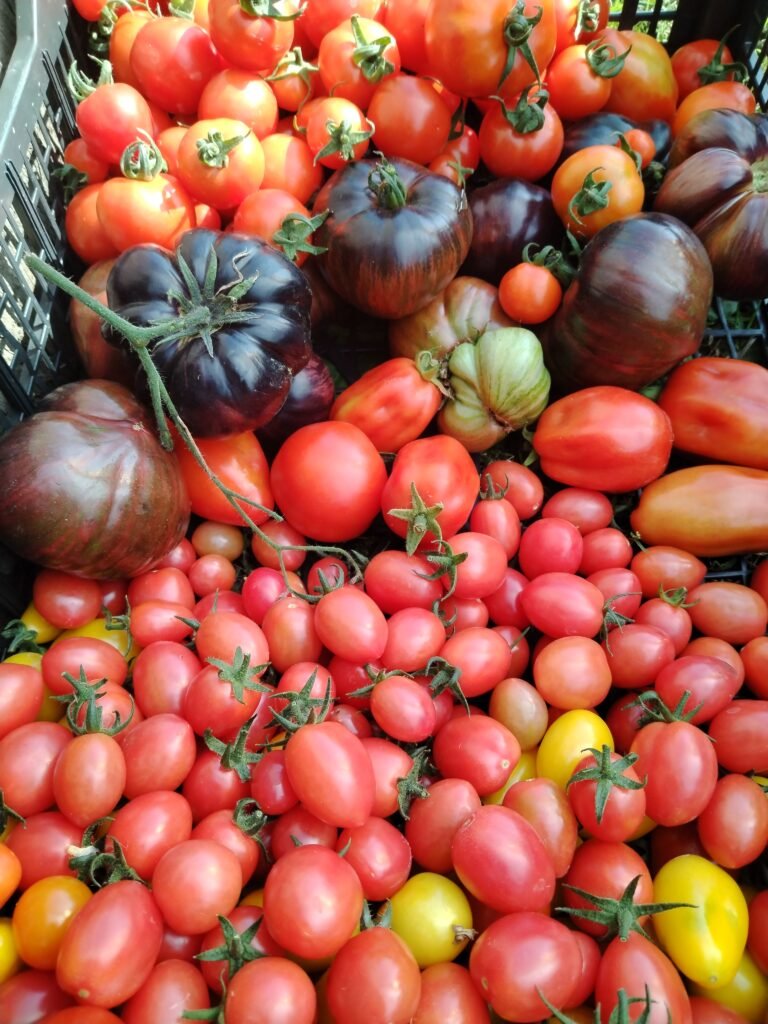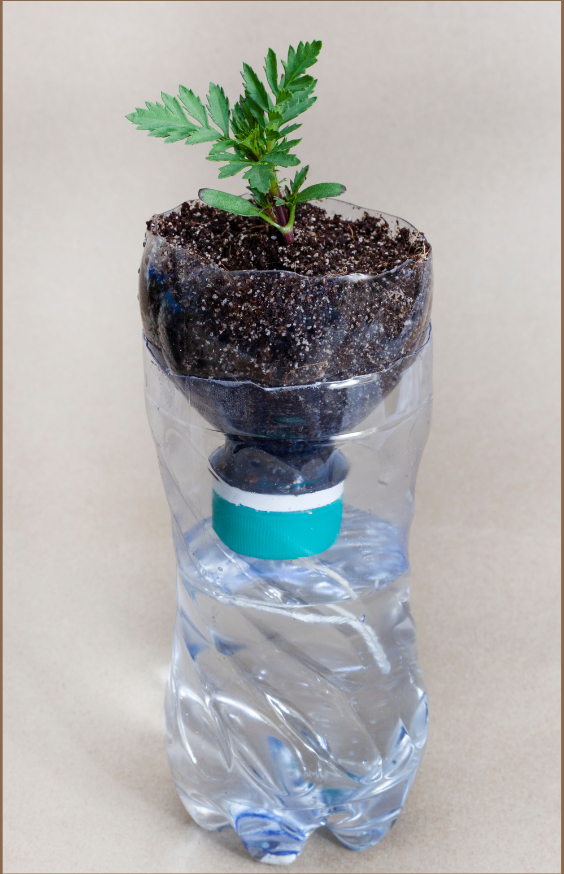I started looking into mood boosting food when I hit a rough patch in my late twenties. I felt anxious all the time, tired even after a full night’s sleep, and my moods swung faster than I could keep up. Deep down, I knew something wasn’t right. I wasn’t just “off”—I was running on empty.
I’ve always believed in the old saying, let food be thy medicine. It just made sense to me. Our bodies are these incredible, fine-tuned machines. And if you want a machine to run well, you have to give it good fuel. But mine was running mostly on sweets and quick fixes—lots of processed food and sugary snacks that left me feeling worse.
So, I went looking for answers in the place I’ve always trusted: the library. I wanted to find a book—just one—that could help me understand the link between food and mood. That’s when I found The Kitchen Shrink. I read the first few pages right there in the aisle and knew I had to have my own copy. I ordered it online the same day.
That book changed everything. It helped me connect the dots between what I was eating and how I was feeling. And it set me on a new path—one where food became a tool, not just a comfort.
If you’re feeling stuck, low, or simply curious about how food can support your mind, these ten thoughtful book gifts are a great place to begin.
(Some of the links on this site are affiliate links, which means I may earn a small commission if you make a purchase through them—at no extra cost to you. I’m a participant in the Amazon Services LLC Associates Program.)
1. The Kitchen Shrink
BY NATALIE SAVONA
When I first started learning about mood boosting food, this was the book that lit the spark. I borrowed it from the library after one too many sleepless, sugar-fueled nights left me foggy and fed up. It was the first time I’d seen real science tied so clearly to the way I was feeling.
The Kitchen Shrink dives into the powerful connection between what we eat and how we feel. Savona breaks down the science in a way that’s easy to understand—even if you’ve never picked up a nutrition book before. She covers everything from anxiety and low mood to PMS and Seasonal Affective Disorder, showing how food can be a tool for balance and support.
There are over 80 recipes, but this isn’t just a cookbook—it’s a wellness guide. You’ll also find tips on supplements, movement, and relaxation, all backed by evidence. It’s the kind of book you’ll go back to again and again, especially if you’re starting to see how mood boosting food might just be the medicine your body and mind have been asking for.
2. The Food Mood Connection
by Uma Naidoo
After reading The Kitchen Shrink, I knew I needed to learn more about mood boosting food. I wanted to understand how food could really help my brain. That’s when I found this gem by Dr. Uma Naidoo.
She’s a nutritional psychiatrist, which means she looks at how food affects your mind. Right away, I liked how she explained big ideas in simple ways. She talks about how some foods can make you feel anxious or tired. But others can help you feel calm, focused, and even happy.
One thing that really stood out? The gut-brain connection. I didn’t know that my mood could be linked to what was going on in my gut. But once I learned about it, it made so much sense. So I started adding gut-friendly foods like yogurt, oats, and greens. Slowly, I began to feel better.
The book also shares stories from real people. I loved that. It made it feel more human and not just a science book. There are recipes too, which makes it easy to try the advice right away.
If you’re looking for clear answers and doable steps, this is a great next read. It builds on what I learned before, but also opens a new door into how powerful mood boosting food really is.

3. Forever Young
by dr. Mark Hyman
is a comprehensive guide to longevity and age reversal that explores how lifestyle, nutrition, and cutting-edge medical science can dramatically slow down and potentially reverse the aging process. Dr. Hyman presents a holistic approach to aging that goes beyond traditional medical perspectives, arguing that aging is not an inevitable decline but a manageable and potentially reversible condition.
The book likely delves into the latest scientific research on cellular aging, examining how factors like diet, exercise, stress, and environmental influences impact our biological age. Dr. Hyman, known for his functional medicine approach, probably offers a detailed exploration of how nutritional strategies, targeted supplements, and lifestyle interventions can help people maintain youthfulness and prevent age-related diseases.
Key themes in the book likely include:
- The science of cellular aging and regeneration
- Nutritional strategies for maintaining cellular health
- Hormonal optimization and its role in aging
- The impact of inflammation on the aging process
- Cutting-edge medical interventions for slowing down aging
- Practical strategies for maintaining physical and cognitive vitality as we age
Dr. Hyman’s approach typically combines scientific rigor with actionable advice, providing readers with a comprehensive roadmap to maintaining health and vitality throughout their lifetime. The book likely challenges conventional views of aging, presenting a proactive, optimistic perspective that emphasizes human potential for continued growth and wellness.
“Forever Young” appears to be more than just a health guide—it’s a revolutionary approach to understanding and managing the aging process, offering hope and practical strategies for those seeking to maintain their youth and vitality well into later life.
4. Brain Food
by Lisa Mosconi
If you’ve ever wondered how to eat for a sharper mind, this book will light the way. Dr. Lisa Mosconi, both a neuroscientist and a nutritionist, brings the science of food and brain health together in a way that’s easy to understand — and even easier to apply.
Unlike most books that dish out vague health advice, Brain Food gets specific. It explains how your brain actually eats, what it needs to thrive, and how certain foods can help prevent memory loss, support focus, and even protect against diseases like Alzheimer’s. Pretty amazing, right?
Dr. Mosconi breaks down the latest research into everyday terms. She shows how brain-friendly nutrients — think omega-3s, antioxidants, and polyphenols — play a key role in how you think, feel, and age. And yes, there’s a strong link to mood boosting food here too. A happy brain starts with a nourished one.
What I loved most is that it’s not just theory. You’ll find clear food tips, sample meal ideas, and simple swaps you can start today. Want to protect your memory? Improve your focus? This book gives you the science and the tools to do both.
It’s not just a brain book. It’s a handbook for aging well, staying sharp, and eating in a way that truly fuels your mind.
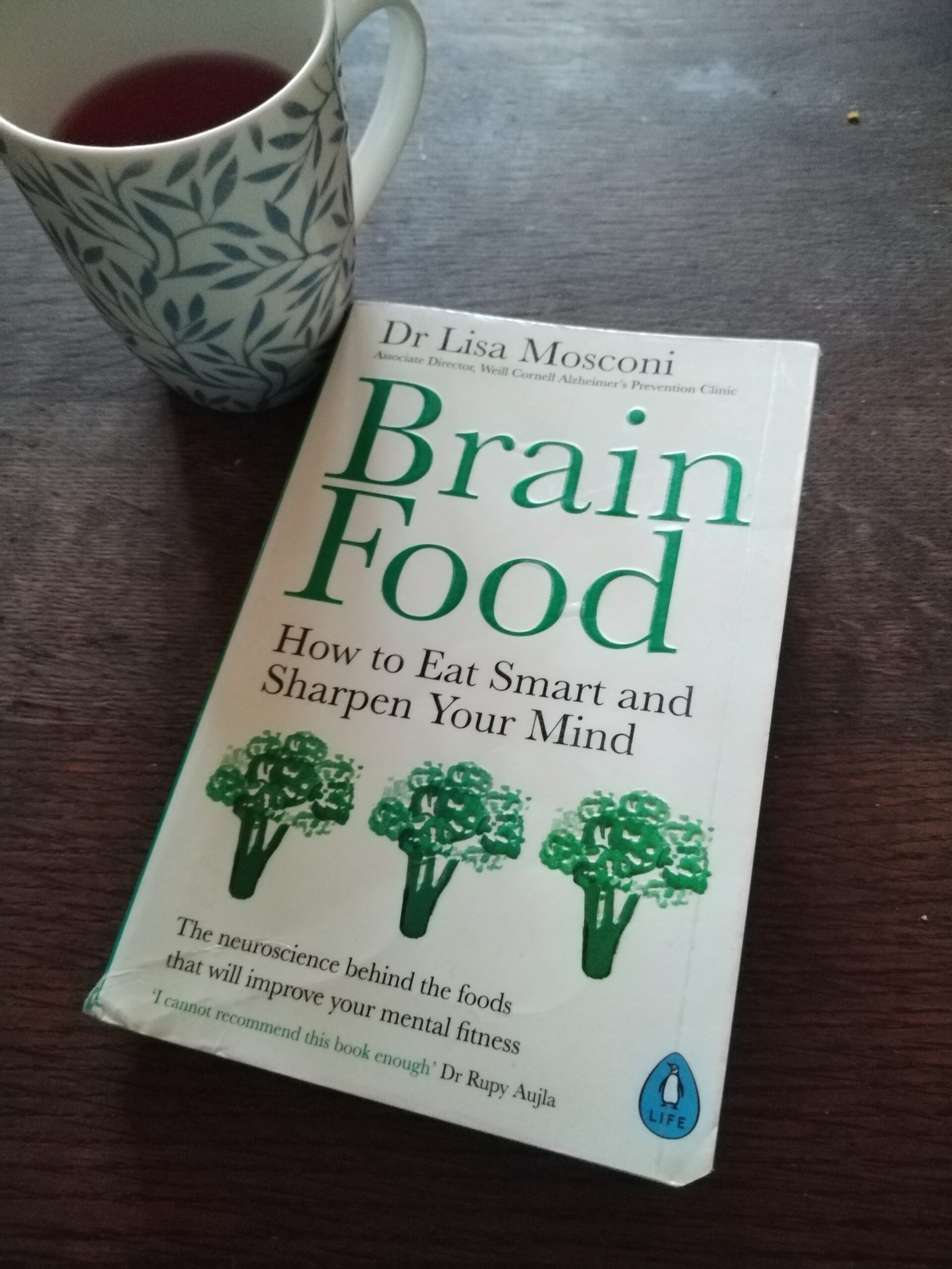
5. Nourish Your Brain: The Cookbook
by Rupy Aujla
This isn’t just another healthy cookbook — it’s a vibrant invitation to cook your way to a better brain. Dr. Rupy Aujla, a medical doctor and passionate foodie, brings his expertise in nutritional medicine to the kitchen, showing how what you eat can directly support your mind.
Each recipe is built with brain health in mind. You’ll find meals designed to boost focus, support memory, and help balance mood — all while tasting absolutely delicious. From breakfast bowls to hearty mains, every dish is packed with ingredients that do more than just fill you up. They fuel you, especially your brain.
What makes this book really shine is its balance of science and flavor. Dr. Aujla explains the “why” behind the ingredients — like how omega-3s, antioxidants, and polyphenols support brain function. But he keeps it simple, so you’re not bogged down in jargon.
This is also a great pick if you’re looking for mood boosting food ideas. Many of the meals are naturally rich in nutrients known to support emotional health, making it easier to nourish your body and mind at the same time.
Whether you’re cooking for clarity, energy, or long-term brain care, this book gives you the tools — and the flavors — to make it happen. It’s equal parts recipe book and brain care guide, served with a generous helping of inspiration.
6. The Mind-Gut Connection
by Emeran Mayer
If you’re starting to wonder how your gut could be tied to your mind, this book is a must-read. It helped me understand something I hadn’t really considered before: the gut and brain talk to each other. A lot.
I picked it up while learning more about mood boosting food and honestly, it blew my mind. Dr. Mayer is both a gut doctor and a brain doctor — a pretty perfect combo for writing this kind of book. He explains how your gut microbiome (all those tiny bacteria in your belly) can affect your mood, your thoughts, and even how well you sleep.
At first, I thought it might be too science-y for me. But Dr. Mayer breaks it down in a way that’s clear and easy to follow. He shows how stress, poor diet, and processed food can throw off the balance in your gut. And once that balance is off, your mood and energy start to take a hit too.
What I loved most was how practical it is. He doesn’t just give you science—he gives you tools. Things like what foods to eat, how to slow down, and how to support your body from the inside out.
This book really helped me connect the dots. If you’re looking to boost your mood and feel more balanced, learning about your gut is a powerful place to start.

7. The Happy Kitchen: Good Mood Food
by Rachel Kelly and Alice Mackintosh
This heartfelt book is a beautiful blend of lived experience and nutritional expertise. Journalist Rachel Kelly teamed up with nutritionist Alice Mackintosh to create a deeply personal, yet practical guide to eating for emotional well-being.
Rachel’s journey through depression is at the heart of this book. Through her collaboration with Alice, she discovered something powerful — a gentle, evidence-based way to support mental health through what’s on your plate. Rather than focusing on fads or strict rules, this book celebrates real food that nourishes both body and mind.
Throughout the book, each chapter explores how specific nutrients can influence mood, stress, sleep, and even motivation. Importantly, the authors avoid overwhelming readers with jargon. Instead, they offer bite-sized wisdom and recipes that are just as soothing to make as they are to eat.
What truly sets The Happy Kitchen apart is its empathetic tone. Instead of a rigid diet plan, it feels like a warm conversation with someone who understands. The recipes are simple, comforting, and designed to help you feel more balanced — both physically and emotionally.
Inside, you’ll find a comforting mix of:
- Insight into the connection between food and mood
- Easy, feel-good recipes (no culinary degree required)
- Tools for navigating low days with grace and nourishment
- Gentle encouragement to build a healthier relationship with food
In the end, if you’re looking for a book that truly lives up to the phrase “mood boosting food,” this is it. The Happy Kitchen isn’t just a cookbook — rather, it’s a companion for anyone seeking to feel a little better, one mindful meal at a time.
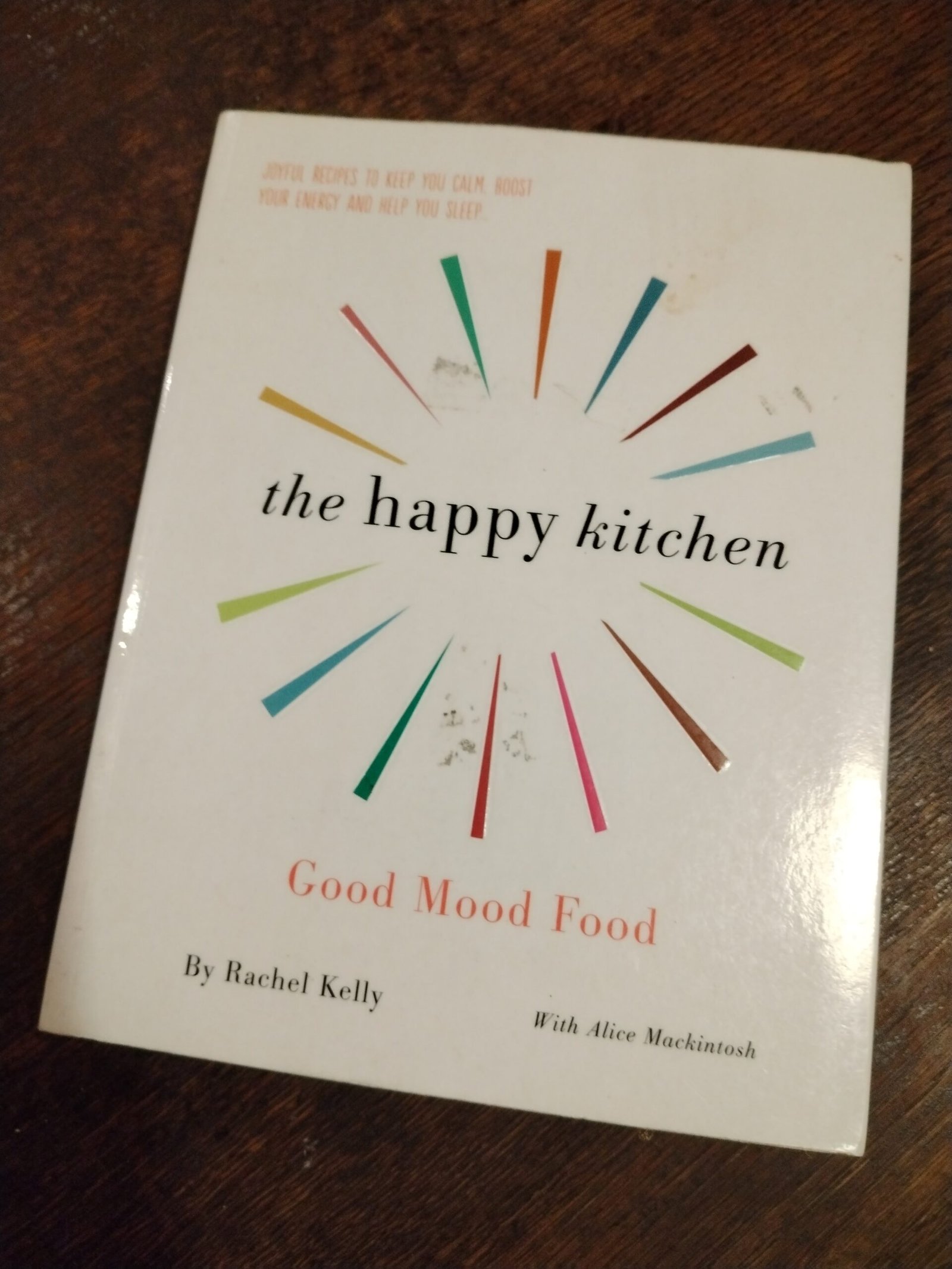
8. Simply Real Eating
by Sarah Adler
Simply Real Eating is a helpful book about eating well without feeling stressed. Sarah Adler shows that healthy food can be simple, tasty, and fun. Instead of counting calories or following hard rules, she teaches you how to enjoy real food in a way that works for everyday life.
First of all, Sarah is a nutrition coach. She uses her knowledge to make food and health easy to understand. You don’t need to be an expert to follow her tips. Everything is written in a friendly, easy way.
What makes this book special is how it focuses on real life. Rather than giving you strict diets, it helps you find balance. Sarah helps readers feel good about their food choices — without guilt or confusion.
In this book, you’ll learn about:
- Eating whole, real foods
- Planning easy meals
- Paying attention while you eat
- Learning simple nutrition facts
- Building healthy habits that last
As you read, you’ll see that her advice is clear and doable. For example, she shares simple tricks that fit into busy days. Even if you don’t have much time, you’ll find ways to eat better.
Most importantly, Sarah’s tone is kind and encouraging. She doesn’t tell you what to do. Instead, she guides you gently, like a good friend.
In the end, this book isn’t just about food. It’s also about how you feel when you eat and how to take care of yourself. So, if you want to eat healthier without feeling overwhelmed, Simply Real Eating is a great place to start.

9. Eat Yourself Beautiful: True Beauty, From the Inside Out
by Rosanna Davison
If you’ve ever wondered how food can help you feel better and look your best, this book is a great place to start. Eat Yourself Beautiful by Rosanna Davison shows how what we eat every day can shape our skin, hair, and even our mood.
First of all, Rosanna reminds us that beauty isn’t just about makeup or fancy creams. Instead, it starts from within. When we feed our bodies the right foods, our natural glow begins to shine through. She explains how things like fruits, veggies, and healthy fats can make your skin clearer, your hair shinier, and your nails stronger.
Then, the book dives into the science part—but don’t worry, it’s easy to follow. Rosanna breaks down how the gut and skin are connected. So, taking care of your belly also helps your face. It’s all linked, and she makes it fun to learn.
She also shares helpful tips on:
- What to eat for glowing skin
- Which foods help your hair and nails
- How to slow signs of aging the natural way
- Why gut health matters
- Feeling better from the inside out
Most importantly, this book is kind and encouraging. Instead of pushing more products, it reminds us to treat our bodies well. It’s all about small changes that add up.
In the end, Eat Yourself Beautiful isn’t just about looking good. It’s about feeling healthy, strong, and confident in your own skin.
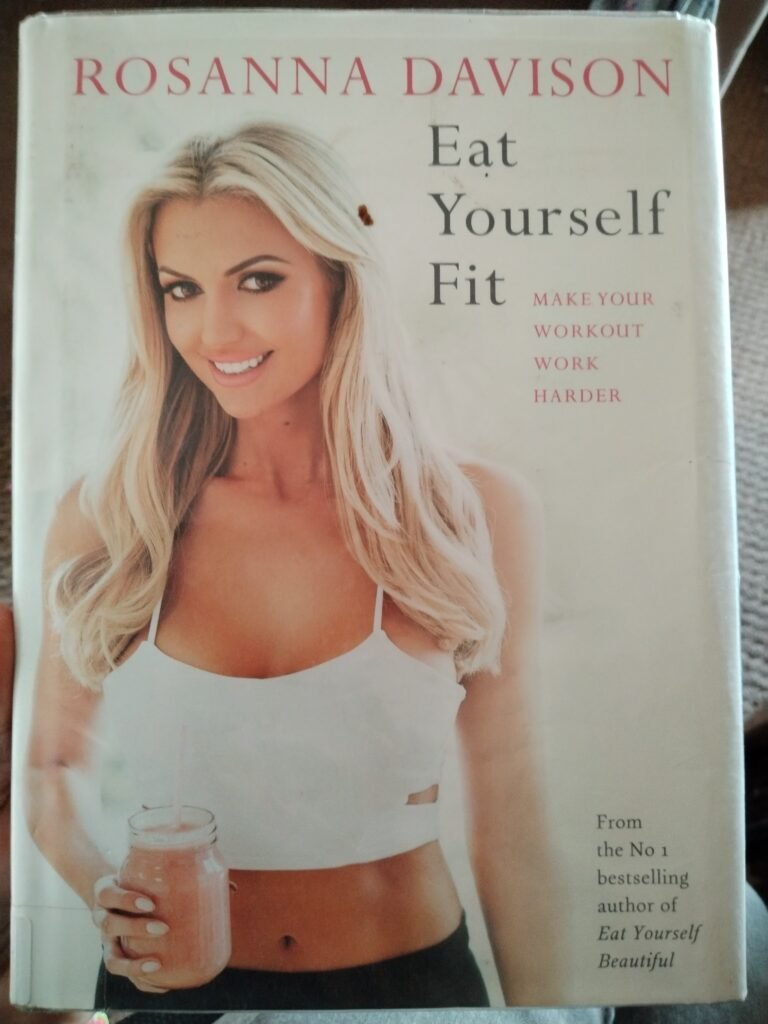
10. Cooked: A Natural History of Transformation
by Michael Pollan
Cooked is not just a book about recipes—it’s a story about how cooking helped shape who we are. Michael Pollan takes readers on a journey through history, science, and culture to show how cooking connects us to nature, our past, and each other.
To explain this, Pollan looks at cooking through four natural elements: fire, water, air, and earth. Each one stands for a different way we cook food—like grilling with fire or baking bread with air. First, he talks about how people used fire to cook meat. Then, he moves on to how we boil and stew with water. After that, he looks at baking and rising dough with air. Finally, he explores how fermentation—using earth and bacteria—helps make foods like cheese or sourdough.
Along the way, Pollan shares stories, facts, and his own cooking adventures. He shows that cooking isn’t just something we do to eat—it’s a powerful part of human life. It brings people together, teaches us patience, and helps us understand where our food comes from.
What makes Cooked special is how it mixes science, history, and everyday life. Pollan helps us see cooking not as a chore, but as something meaningful and creative. Because of this, readers might start thinking about dinner time in a whole new way.
In the end, Cooked is a book that makes you want to slow down and really enjoy making food. It helps us remember that cooking isn’t just about feeding ourselves—it’s about connecting with the world around us.
Wrap-Up
Eating well isn’t just about looking good or following the latest food trend. It’s about feeling good from the inside out. As we’ve seen in these wonderful books, food is more than fuel—it’s a powerful tool for self-care, healing, and joy. Whether you’re learning how to cook, trying to eat more whole foods, or simply wanting to feel better each day, the way we eat can shape every part of our lives.
Of course, real change takes time. But even small steps—like trying one new recipe or adding more veggies to your plate—can make a big difference. You don’t have to be perfect. You just have to start. And the best part? You don’t have to do it alone. These books, written by caring experts, are like friendly guides walking beside you on your journey to better health.
Meanwhile, if you want to dive even deeper into how food affects how you feel, be sure to check out Food and Mind: How to Improve Your Emotional Wellness. It’s full of gentle tips and heartfelt ideas to help you feel more balanced and supported in your daily life.
In the end, your wellness journey doesn’t need to be hard. It can be joyful, nourishing, and even fun. So take a breath, grab a fork, and remember—you’re already on your way.

